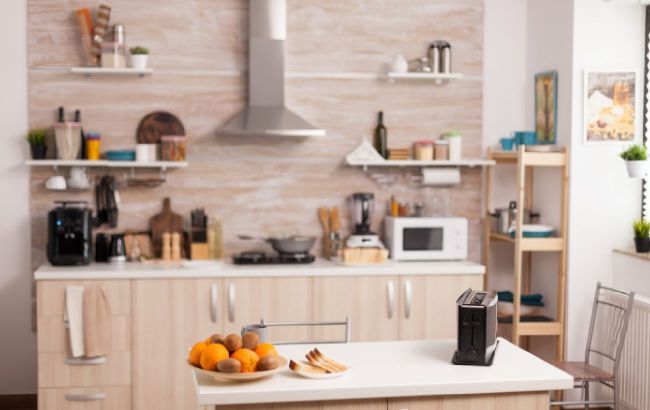Cluttering space: Do not keep these items in kitchen
 What not to keep in the kitchen (photo: Freepik)
What not to keep in the kitchen (photo: Freepik)
The kitchen is the most frequently used room, so it is essential to keep it organized. With numerous cabinets, drawers, and shelves, it is easy to forget about items that are seldom used or to find a place for things you are not ready to throw away.
Martha Stewart provides insights on what should not be kept in the kitchen.
Damaged non-stick cookware
For many years, there has been ongoing debate about the safety of the chemicals used in non-stick cookware.
While using stainless steel and cast iron cookware is safe, using damaged non-stick cookware made with Teflon is not recommended.
Moreover, another issue is that non-stick cookware with damaged coatings simply does not perform its function.
Chipped cups and glasses
Chipped cups and glasses can be hazardous – heat can cause the dishes to break into pieces, which can injure the mouth while drinking.
Therefore, it's better to recycle chipped cups and glassware, replacing them with new items.
Cracked or old food containers
A cabinet filled with food storage containers is often one of the biggest sources of chaos in the kitchen. Containers with cracks or broken parts should be thrown away because they are not airtight.
If there are simply too many containers, consider selling or giving away the unnecessary ones or using them as organizers for cosmetics or other items.
Warped pots and pans
Most pots and pans do not last forever, and after some time, you might notice that some have become warped. Such cookware does not sit evenly on the stove, causing food to cook unevenly.
Repairing warped pots and pans is not easy, so if you lack the time, desire, or skills, it is simpler to purchase new ones.
Old kitchen linens
If you only bring out kitchen linens, such as cloth napkins or tablecloths, for special occasions, it’s easy to forget to assess their condition. Additionally, kitchen towels accumulate dirt over time, becoming thinner and more worn out.
Before discarding towels, napkins, or tablecloths, see if they can be restored. If they are too dull and frayed, it might be time to throw them away or repurpose them as rags.
Spoiled food
This is quite obvious, but it’s arguably the most important point since consuming spoiled food can lead to food poisoning.
It is essential to regularly check expiration dates and evaluate the condition of all food items, especially those that have not been used and have been stored for a long time.
Unnecessary food items
Sometimes, food items are purchased for a recipe that was never made. Although such products may not spoil, it is better to give them away if they are still fit for consumption.
Stale dried herbs and spices
Many find it challenging to use up an entire packet of dried herbs and spices before the expiration date, especially those used only in rare recipes.
However, dried herbs and spices lose their properties over time - if they no longer have aroma, your food won’t acquire their taste either.
Scratched or warped plastic cutting boards
Warped boards are likely to wobble during cutting, which can lead to injuries - or, at the very least, inconvenience. Scratches on plastic cutting boards trap bacteria that are not always removed by washing.
Wooden utensils with cracks
Wooden utensils are great for cooking various dishes, but as soon as they start to crack and wear out, it's time to replace them with new ones.
The cracks and fuzzy fibers become a hiding place for bacteria, making it extremely difficult to thoroughly clean such areas.
Empty jars
Keeping glass jars after consuming their contents is environmentally friendly, and they can be used to store spices, jams, or turned into minimalist vases.
However, most likely, you won't need all the jars that occupy the entire bottom shelf of your drawer. You can sort them by size, keeping the ones you need and giving the rest for recycling.
Unused kitchen items
Even kitchen items in excellent condition create clutter if not used. If certain tools are not used, the question arises whether they are needed at all.
To prevent kitchen items from taking up space, it is advisable to review them, selling or giving away new and unused items. Tools that no longer work, such as a broken can opener or vegetable peeler, can be discarded.
Read also about why a refrigerator may have an unpleasant odor.

